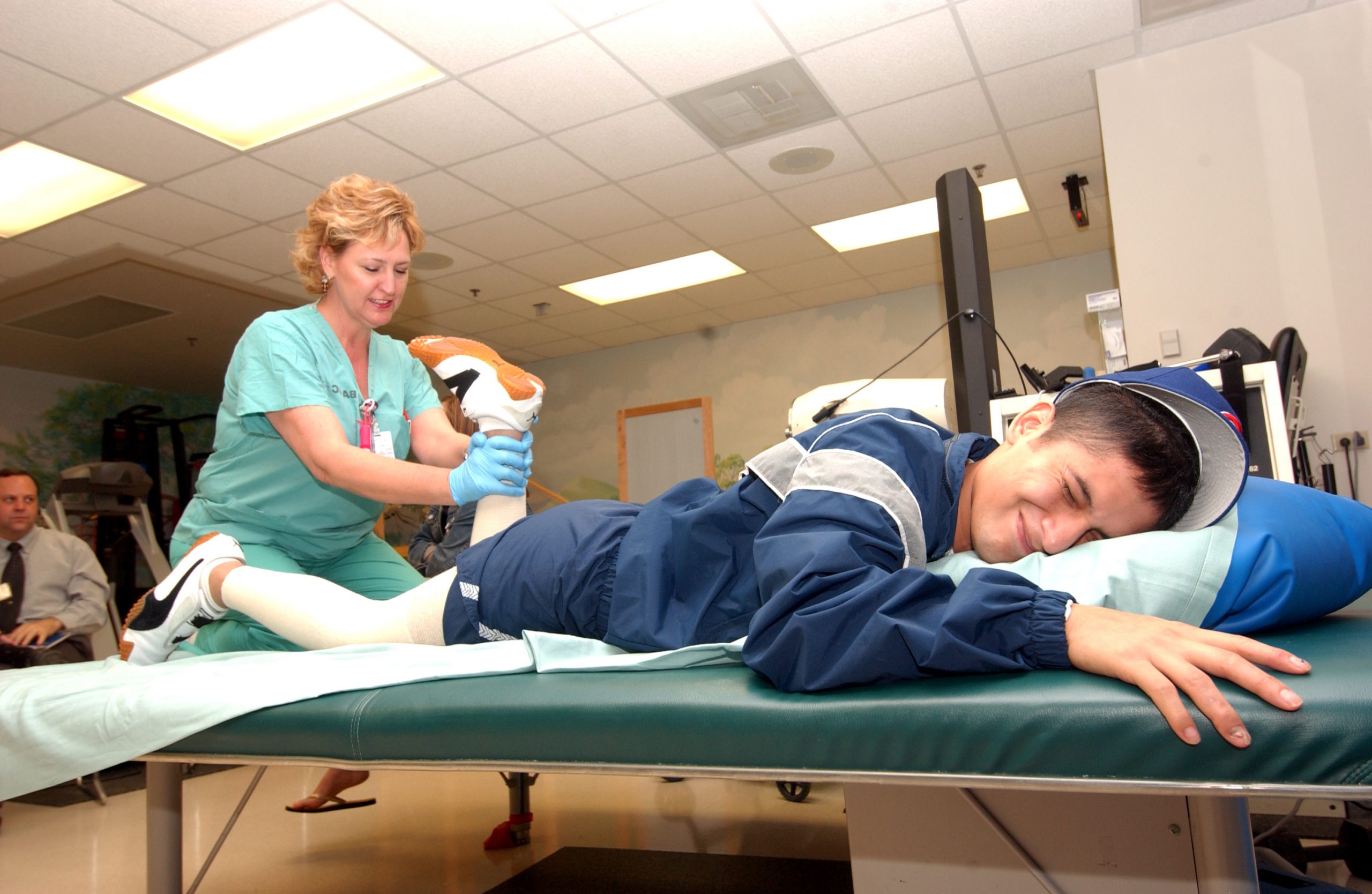
Senior Eating Disorders – What to Know
September 3, 2018
Occupational Therapy – Returning You to a Normal Life
November 7, 2018When you think of speech therapy, you may think of small children receiving help on how to form difficult sounds. While this is a large part of speech therapy, speech therapy is actually used to help people of all ages who struggle with speech and language.
In addition to working with children, speech-language pathologists spend a lot of time working with senior citizens. Working with senior citizens may consist of working in the clinic, conducting home visits, or working in an assisted living facility or nursing home. Today we’ll discuss what speech therapy is for senior citizens and how it can help them live their daily lives.
Why is Speech Therapy Important for Seniors?
Speech therapy is important for people of any age because communication is a vital part of life. Communication is especially important for seniors because they may need to communicate the timing and location of pain and any basic needs that they may need to be fulfilled. This becomes increasingly important as a person ages because pain can quickly turn into an emergency situation that requires immediate attention.
In addition to the functional reasons that communication is important for seniors, it is also important for their social well-being. Regardless of if the individual lives with a spouse, by themselves, in an assisted living facility, or in a nursing home, social well-being is important for their overall health. If the individual feels like they can’t connect with others, this can have a negative impact on their outlook on life and their health.
How Do I Know if Speech Therapy is Needed?
The question to ask yourself if you are trying to determine if your loved one could benefit from speech therapy is “Are they having trouble communicating?” Since you are familiar with their daily routines, you should be able to answer this question. This is the first step in determining if speech therapy is needed.
A few other things to think about when considering if your loved one would benefit from speech therapy include how they respond when you ask them questions. Do they seem to have difficulty understanding the question or forming an answer? Additionally, are they still able to take care of their own medical and money records? If they used to do this on their own and have recently lost the ability to do so, it could reveal an underlying language issue. Lastly, is the person constantly in dangerous situations? This could include putting themselves at risk for injury or just in danger in general.
If you answered yes to these questions, it does not mean that your loved one will be thrown into speech therapy automatically. The first step is for the speech-language pathologist to conduct an evaluation to determine the root of the communication problems. Once the root of the problem is identified, the speech-language pathologist will collaborate with you to provide the best plan of treatment possible.
What will Therapy Consist of?
The answer to this question will be different for each patient because a large part of speech therapy is providing an individualized treatment plan that takes into account the patient and family’s goals. However, we have included frequent therapy plans below so that you can get a general feel of what the therapy may entail for your loved one.
A frequent therapy plan for seniors is aimed at the general aging process. This therapy plan includes working to strengthen the muscles of the larynx (a key part in forming speech) which tend to weaken with age. This therapy will consist of vocal exercises that will make it easier for them to use their voice to communicate.
Another type of therapy is often provided after a senior suffers a stroke. The speech and language problems following a stroke are known as aphasia and the speech-language pathologist is trained to provide therapy especially for aphasia.
The strategies that your loved one is exposed to will vary depending on the speech-language pathologist. Some general strategies include group therapy to gain confidence speaking, visual speech perception (linking words to pictures), and melodic intonation therapy which consists of singing words that can’t be produced using normal speech.
Overall, speech therapy is a great solution if your loved one has suffered a stroke or is having difficulty with speech and language associated with the natural aging process. Speech therapy is provided at a variety of care facilities including Maplewood Sauk Prairie. Speech therapy can improve your loved one’s quality of life by giving them back the ability to communicate and form connections with others.
Sources:
https://www.seniorliving.org/healthcare/speech-therapy/


